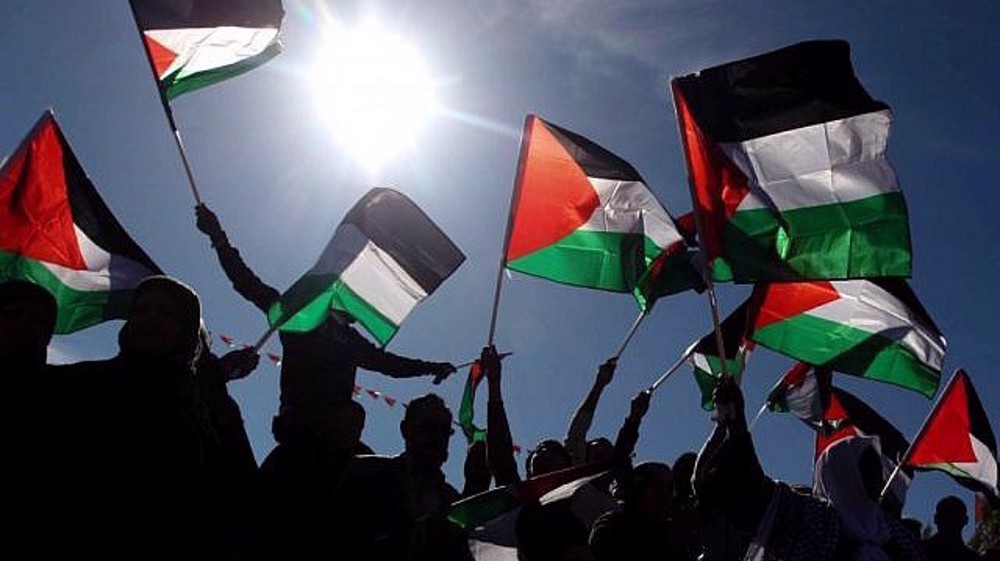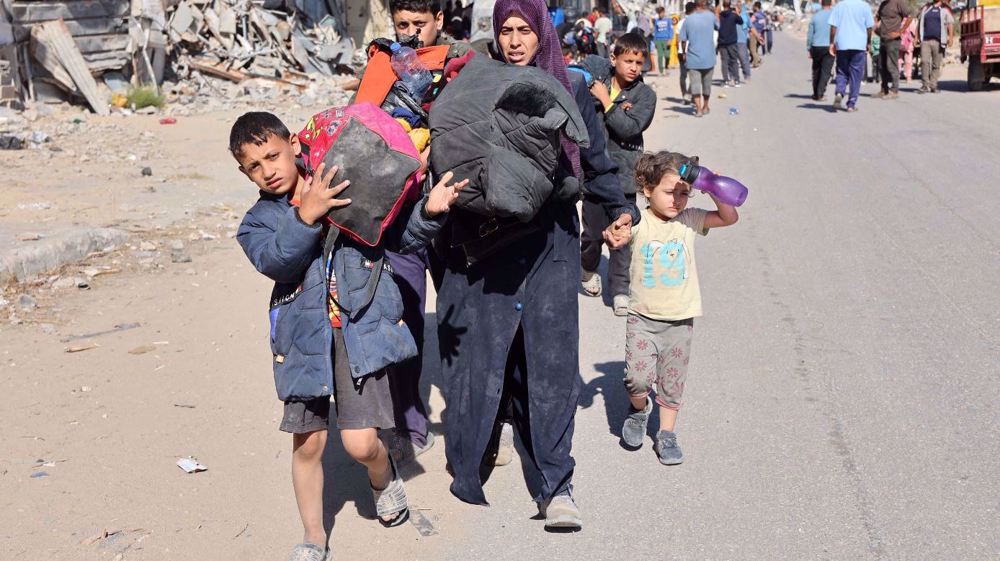UN says not safe yet for Rohingya refugees to return to Myanmar
A senior United Nations official says it is not yet safe for thousands of Rohingya Muslims living in refugee camps in Bangladesh to begin returning to Myanmar's Rakhine state.
The deputy executive director of the United Nations Children's Fund (UNICEF), Justin Forsyth, said in the Bangladeshi capital Dhaka on Thursday that issues surrounding safety of the Rohingya needed to be addressed before their repatriation.
"This moment is not safe to go back," the UN official said, adding, "We have to improve the security situation inside Myanmar to send them back."
While many Rohingya want to eventually return to their villages, Forsyth noted that no one he met during visits to Bangladesh's refugee camps said they would go back now.
Elsewhere in his remarks, the UN official urged Myanmar authorities to allow international organizations’ access to all the areas affected by the crisis.
Speaking from Kutapalong refugee camp in southern Bangladesh on Wednesday, Forsyth said many of the refugees were still traumatized by their experiences.
"It is critical that their rights and needs in terms of protection and aid are front and center in any agreement to return families to Myanmar. Return of refugees to Myanmar must be voluntary, safe and dignified,” he said.
In a separate development, Bill Richardson, a former US diplomat, resigned from an international panel on the Rohingya crisis, set up by Myanmar's de facto leader Aung San Suu Kyi.
He said the panel was a "whitewash" and accused Suu Kyi of lacking "moral leadership."
"She blames all the problems that Myanmar is having on the international media, on the UN, on human rights groups, on other governments, and I think this is caused by the bubble that is around her, by individuals that are not giving her frank advice," Richardson, once a close friend of Suu Kyi, said Wednesday in Yangon, Myanmar's largest city.
Richardson said Suu Kyi appeared to want the 10-member international advisory group to endorse her policies.
"I'm not going to be part of it because I think there are serious issues of human rights violations, safety, citizenship, peace and stability that need to be addressed," said Richardson, adding, "I just felt that my advice and counsel would not be heeded."

Bangladesh has already postponed the gradual repatriation, which was slated to begin Tuesday, amid concerns that the refugees could be coerced into leaving.
The UN says nearly 690,000 Rohingya Muslims have fled Rakhine for Bangladesh since violence intensified in August 2017.
Myanmar's troops have been committing killings and rapes, making arbitrary arrests, and carrying out mass arson attacks to destroy houses in Rakhine. Only in its first month, the military clampdown killed some 6,700 Rohingya Muslims, including more than 700 children, according to the international medical charity Doctors Without Borders.
Israeli forces kill 7 more Palestinians in West Bank
Israel’s Netanyahu dismisses military affairs minister Gallant
Hezbollah attacks turn Israel’s Haifa into a ghost town
Iran’s FM meets Pakistani PM, discusses bilateral ties, Israeli atrocities
Iran ramps up gasoline output amid rising demand
UK foreign secretary under pressure over denial of genocide in Gaza
VIDEO | Press TV's news headlines
Hezbollah bombards explosives factory in occupied territories










 This makes it easy to access the Press TV website
This makes it easy to access the Press TV website